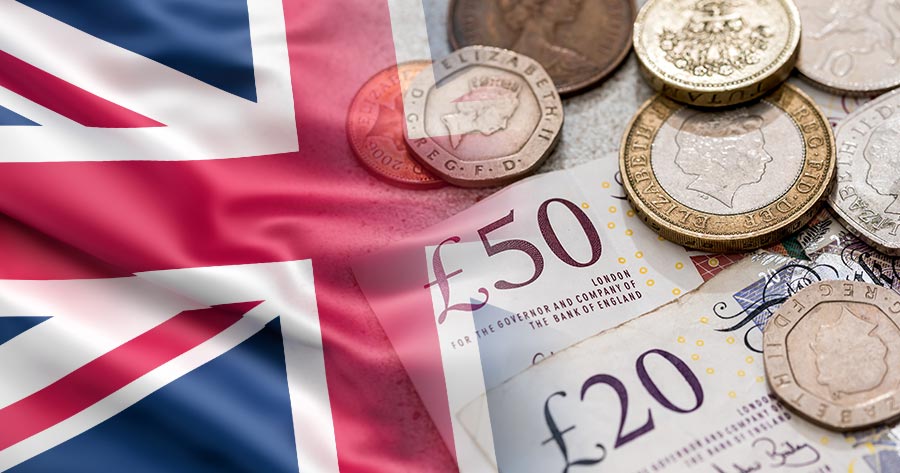The United Kingdom’s annual inflation rate remained unchanged at 3.8% in August, in line with economist expectations, according to data from the Office for National Statistics (ONS) released Wednesday.
Core inflation, which excludes the more volatile components such as energy, food, alcohol, and tobacco, rose by 3.6% year-on-year in August, decelerating from July’s 3.8%. This follows July’s higher-than-anticipated headline inflation of 3.8%.
Grant Fitzner, Chief Economist at ONS, stated that airfares were the primary factor pulling down inflation in August, as prices increased less than they did a year earlier following a notable July surge tied to summer holiday timing. Fitzner added via X that this easing impact was partially offset by a rise in fuel prices and hotel accommodation costs not declining as much as they did in the same period last year.
The ONS further highlighted that food price inflation accelerated for a fifth consecutive month, with modest increases observed across several categories, including vegetables, cheese, and fish.
After the data release, the pound edged down slightly against the US dollar, trading at $1.3637.
With inflation remaining elevated, the Bank of England continues to closely monitor price trends. It previously forecast the consumer price index could peak at 4% in September before starting to ease in the first half of 2026.
The central bank cut its policy rate in August from 4.25% to 4% and signaled a “gradual and careful” approach to policy easing, mindful of inflationary forces but also the need to support economic growth and investment.
While the Bank of England’s next rate-setting meeting is scheduled for Thursday, a further change to interest rates this month is not anticipated, and the outlook for a possible move in November remains uncertain.
Scott Gardner, investment strategist at Nutmeg, the J.P. Morgan-owned digital wealth manager, commented that persistent inflation is limiting the Bank of England’s ability to implement a fourth rate cut this year. Gardner observed that, while wage growth has recently eased, further progress on inflation will be necessary before policymakers consider additional monetary easing.
Gardner also warned that inflation could climb higher in the short term, potentially reaching 4% in the autumn and intensifying the cost-of-living strain on households.





